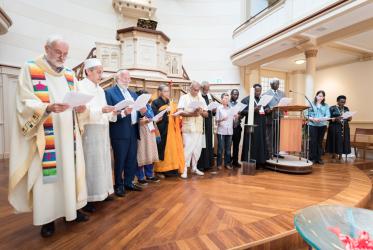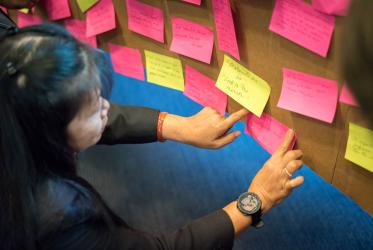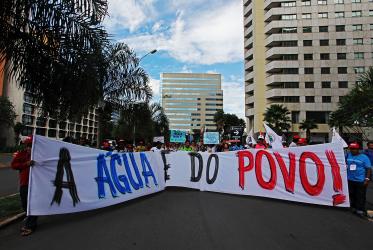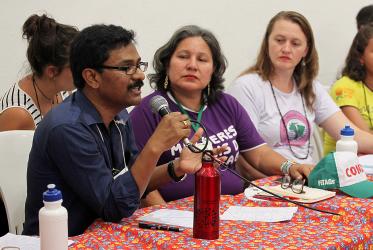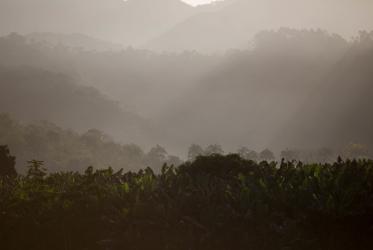Displaying 1 - 20 of 25
WCC Eco-School encourages youth to become eco-ambassadors
08 November 2018
What difference does dressing in black make?
02 August 2018
Working toward an AIDS-free generation
26 July 2018
Building bridges of faith in the HIV response
25 July 2018
Building Bridges in the global HIV response
25 July 2018
WCC reaffirms water as God’s gift and a human right
27 March 2018
Voices from Colombia: “What if we have no land to till?”
15 February 2018
Protect the Amazon, urges WCC statement
22 November 2017
G20 summit: call to pray for peace in Hamburg
07 July 2017







